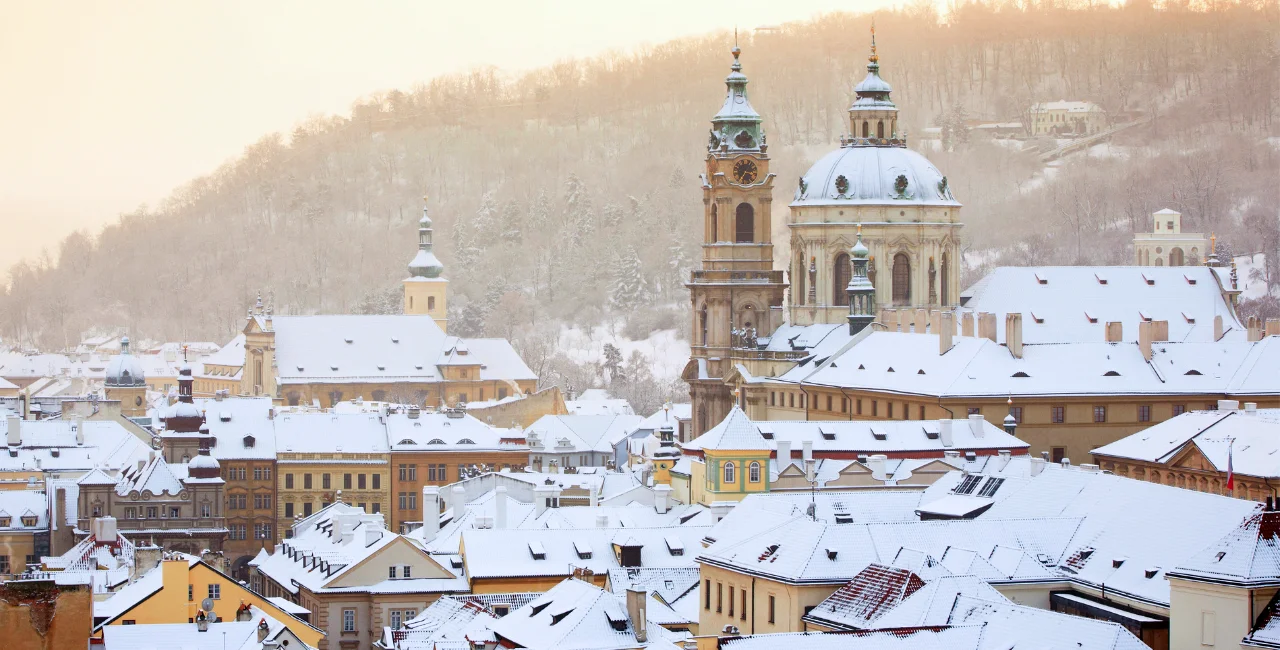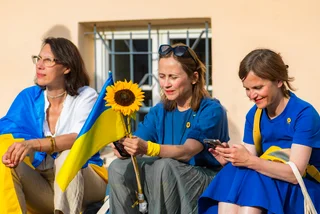FINANCE EU approves CZK 18bn in subsidies for Czechia
The European Commission has approved EUR 702 million (CZK 17.9 billion) in subsidies for the Czech Republic as part of an extraordinary recovery fund to mitigate the economic crisis. The commission believes that the Czech Republic has met the conditions to receive additional funding from the National Recovery Plan. Last February, the commission also approved the first regular payment of EUR 928 million (CZK 23.6 billion).
This year, the Czech Republic plans to apply for the fourth and fifth tranches of the plan, but it has not yet been decided if it will be one application for both or two separate applications. The commission has stated that the Czech Republic has satisfactorily met the milestones and goals set for the payment of the second and third installments.
INTERNATIONAL AFFAIRS Czechia to hold V4 summit in Prague next week
Prime Minister Petr Fiala has announced that next week he will hold talks with the prime ministers of the Visegrad Group countries in Prague, as announced by the Government Office. The meeting will cover topics such as energy security, the EU's strategic agenda, and preventing migration. Fiala will also have a bilateral meeting with Polish Prime Minister Donald Tusk, discussing EU enlargement, the situation in Ukraine, regional and defense cooperation, energy, and migration.
The V4 prime ministerial summit will take place on Tuesday, with a joint working lunch, where they will discuss energy security, the EU's strategic agenda, preventing illegal migration, and supporting the International Visegrad Fund.
PROTEST Police arrest man after farmer's protest threat
Prague police say they arrested a man who allegedly threatened to join a farmer's protest with a submachine gun. During a house search, they found an illegally held submachine gun and live ammunition magazines. The suspect, detained by the police, is facing multiple charges and could be sentenced to up to 10 years in prison. He has a criminal record.
The police intercepted the threat on a social network and took the suspect into custody on Sunday afternoon. During a house search, law enforcement officials discovered an illegally held Model 58 submachine gun and live ammunition.
DIPLOMACY Angolan president to visit Czechia
Angolan President João Lourenço will visit Czechia and meet with Czech President Petr Pavel and other constitutional officials on Wednesday, according to the Czech Presidential Office. The visit follows last year's trip by Mozambican President Filipe Nyusi, which resulted in cooperation projects in energy, transport, and defense.
Lourenço will meet with Pavel in the morning and then visit the Senate in the afternoon to meet with Speaker Miloš Vystrčil, Deputy Speaker jiří drahoš, and other senior politicians. The Angolan’s visit aims to strengthen diplomatic relations and explore opportunities for further cooperation between the two countries.
energy Prague energy supplier to cut gas prices
Pražská plynárenská, one of the largest energy suppliers in the Czech Republic, has announced it will reduce natural gas prices by an average of 6.1 percent from March. This will result in savings of hundreds to thousands of crowns per year for consumers. The company will also adjust its fixed products.
This decision comes after other suppliers have already started lowering energy prices in response to the drop in wholesale energy prices. The average household using gas for cooking and water heating could save CZK 750 per year, while those using gas for heating could save over CZK 2,000 annually.
MOTORISTS Highway stamps to rise in line with inflation
Czech Transport Minister Martin Kupka announced today that highway stamp prices will increase regularly – in line with inflation – in the future. However, support and subsidies for hybrid and electric vehicle stamps will gradually decrease. The current price of CZK 1,500 will rise to CZK 2,300 next month, with a new one-day stamp option for motorists.
Kupka explained that this increase is necessary due to the costs of maintaining new highways. He also stated that the Czech Republic will follow the trend of other countries by gradually increasing stamp prices in line with inflation.
Protest Czech minister criticizes Prague farmer protest
Minister of Agriculture Marek Výborný has criticized the organizers of today's protest in Prague, accusing them of exploiting farmers for political ends. Výborný stated in a TV interview that most of the organizers had no farming experience, branding them part of the disinformation scene. This sparked a debate, with ANO's vice-chairman Karel Havlíček defending the protesters.
Výborný stood firm, denouncing the organizers for manipulating farmers. The protest, led by Bohumír Dufek and Zdeněk Jandejsek, aims to challenge the government's new green deal. Despite divisions, further protests are planned, highlighting farmers' grievances over rising costs and stagnant incomes.
Energy Czechia saw rise in negative energy prices in 2023
Negative electricity prices made a resurgence in the Czech Republic last year, reaching the highest levels since 2015. Data indicates 134 hours of negative prices, a significant increase from the previous year and the most recorded in at least nine years. These prices occur due to an imbalance between supply and demand, often stemming from excessive renewable energy production.
While the number of negative price hours decreased during the energy crisis, it surged again as the crisis abated. Notably, on May 28, electricity prices hit a low of minus 68.54 euros per megawatt hour, resulting in free electricity on the market for several hours.
Ukraine Czechia has provided CZK 16 billion in refugee aid
The Czech Republic has allocated approximately CZK 16.33 billion in humanitarian aid to Ukrainian war refugees since the Russian invasion, with CZK 2.84 billion supporting Czech households that host refugees, according to data from the Ministry of Labour. The state's aid includes an extraordinary benefit initially, replaced by humanitarian support covering basic needs.
Refugees have begun repaying aid through taxes on their earnings, which amounted to an estimated CZK 12 to 15 billion last year. Prague and Central Bohemia host the most refugees, with a total of over 383,000 Ukrainians benefitting from temporary protection in the Czech Republic. EU states recently agreed to extend temporary protection for Ukrainians until March 2025.
Economy Survey: 85 percent of Czechs felt inflation
According to a recent Ipsos survey for Generali Investments, 85 percent of Czechs contacted said they felt the effects of high inflation in 2023, with 44 percent saying they were affected by government's recent austerity measures. Despite this, optimism rises as 37 percent anticipate improved financial management this year.
While 67.3 percent of people said they struggled to cope with inflation last year, optimism prevails for 2024, with forecasts of over one percent economic growth and a projected inflation decrease. Concerns among those contacted shifted from inflation to high energy prices, which 33.6 percent said they fear most in 2024.
Money Analysts expect crown to continue to lose value
Analysts contacted by Czech News Agency predict that the Czech crown, which fell to a two-year low of CZK 25.50/EUR on Friday, may continue to lose value. Experts anticipate factors like recent Czech National Bank and European Central Bank actions to influence exchange rates.
Purple Trading's Petr Lajsek forecasts potential further weakening up to CZK 26 per euro by summer, despite possible CNB interventions. Conversely, analysts like Port's Lukáš Raška see stabilization as other central banks maintain rates.













 Reading time: 5 minutes
Reading time: 5 minutes 














 English
English
 German
German
 French
French























